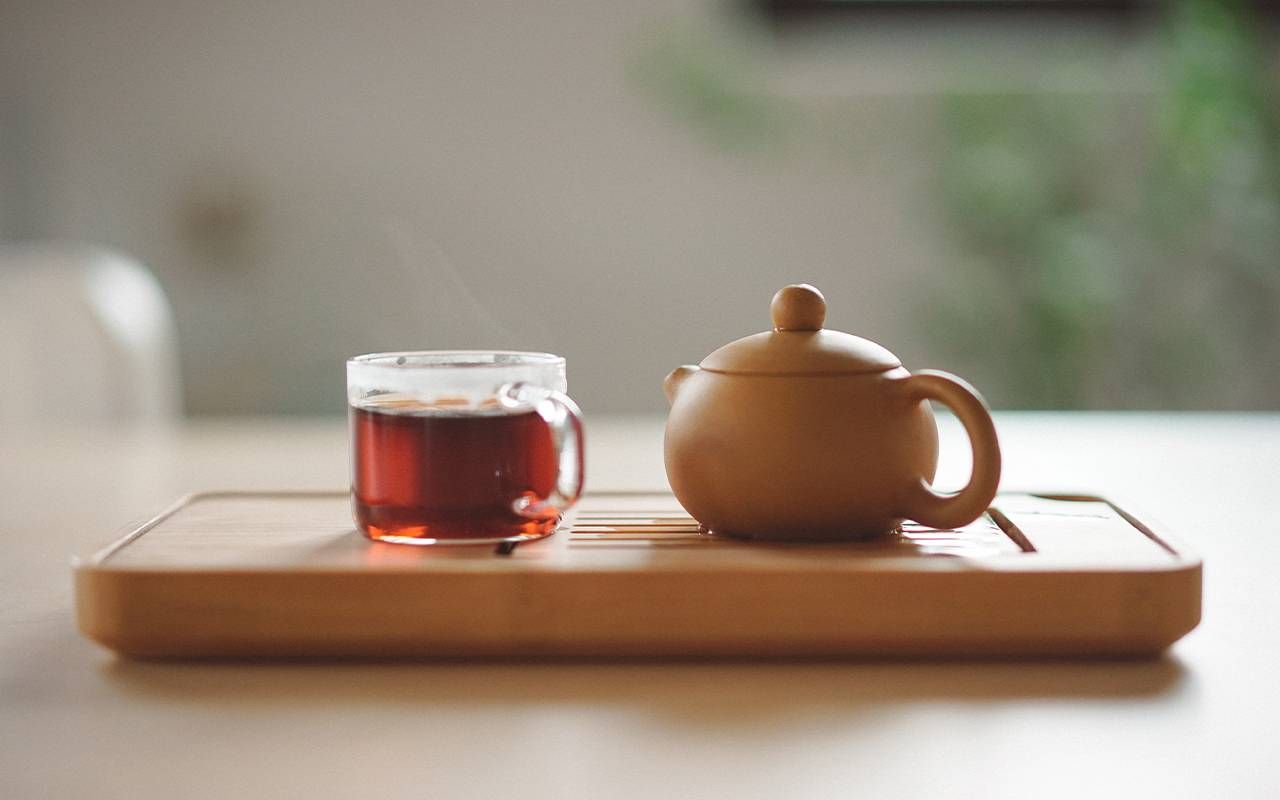Everything You’ve Always Wanted To Know About Tea
What's better than a health-boosting sip of tea? Here's why you should pour yourself a cup.
Second to water, tea is the world's drink of choice. Nearly 80% of U.S. households have tea in their cupboards, according to Peter F. Goggi, president of the Tea Association of the U.S.A., Inc. "On any given day, over 159 million Americans are drinking tea." To meet this demand, in 2021, the U.S. imported about 240 million pounds of tea.

Moreover, tea drinking increased during the height of the pandemic, as restaurants closed and we drank tea at home. Americans like tea iced, and we consume 80% of it that way. In the southern U.S., they refer to it as "Sweet Tea." And while black tea is the most popular tea, 15% of us prefer ours green.
"On any given day, over 159 million Americans are drinking tea."
Camellia Sinensis
When we think tea, we tend to think of tea made from the Camellia sinensis plant – black, oolong, green and white. While processing tea leaves is a complex process, the various types of tea depend on the degree to which they're oxidized (exposed to air, which makes the leaves darker).
Black tea is aged the longest and is oxidized, and oolong is partially oxidized, while green tea is oxidized even less and processed while the leaves are still green. Matcha is a unique green tea that's ground into a powder. White tea is the least processed and oxidized tea derived from Camellia sinensis.
Herbal Tea
While all tea comes from plants, herbal teas, which aren't made from Camellia sinensis, use dried flowers, spices, leaves, herbs, fruits, seeds or roots. Herbal teas generally contain no caffeine and include chamomile, peppermint, rosehip, ginger tea, hibiscus, and lemon balm, among many others.
Tea is more than a pleasant beverage – it's healthy.
Penn Medicine reports that chamomile tea has several health benefits, including reducing stress and improving sleep. In addition, peppermint tea can help upset stomachs and address constipation and motion sickness, among other things.
Ginger tea is helpful for morning sickness and indigestion. Hibiscus is good for liver health and can lower blood pressure.
However, Penn Medicine cautions that because herbal teas are made from various plants, some might trigger allergic reactions, so it's essential to read the ingredient list before drinking a new herbal tea.
Indigenous Tea
When Europeans arrived in the New World, some Indigenous peoples were drinking beverages like caffeinated cacao (in Mesoamerica) and tea made from the caffeinated yaupon holly (in the area that is now the southeastern U.S.). Yaupon is currently making a comeback.
For example, Yerba mate, a stimulant drink popular in parts of South America, is related to yaupon. Native Americans in the area that is now the southwestern and western U.S. brewed a caffeine-free tea called Navajo tea from a plant known as a green thread.
Indigenous Americans also drank Cedar tea and Labrador tea (also known as Swamp Tea). Rooibos tea (also known as bush tea or red tea), grown in South Africa, is another popular herbal tea enjoyed in the U.S.
Drink To Your Health
Tea is more than a pleasant beverage – it's healthy. Tea from Camellia sinensis contains some promising compounds for our health, like polyphenols.
Green tea has the highest concentration of polyphenols compared to black or oolong teas.
"Polyphenols are active compounds that have been shown to have possible beneficial effects against several diseases including diabetes and cardiovascular disease," says Sandra J. Arevalo Valencia, a registered dietician and spokesperson for the Academy of Nutrition and Dietetics.
"Green tea has the highest concentration of polyphenols compared to black or oolong teas," Valencia adds.
The Cleveland Clinic reports that catechin, an antioxidant in leaves from the Camellia sinensis plant, "helps protect your cells from damage caused by out-of-hand free radicals reacting with other molecules in your body."
Valencia reports that green tea helps "maintain blood sugars within normal levels and regulate the amount of insulin and glucagon, two hormones needed to maintain the balance of sugar in the blood."
The NCCIH (National Center for Complementary and Integrative Health) reports "some limited evidence that suggests green tea may have a modest cholesterol-lowering effect."
A small number of studies on the effects of tea on heart disease risk "indicate that both green and black tea might have beneficial effects on some heart disease risk factors, including blood pressure and cholesterol."
Regarding cancer, the NCCIH says that while some animal studies have found that polyphenols in tea "inhibit the growth of tumors in different parts of the body, epidemiologic and clinical studies with humans have been inconclusive."
To Caff Or Not To Caff
While teas from the Camellia sinensis plant are lower in caffeine than coffee, these teas can be problematic for those sensitive to caffeine. "People with gastrointestinal issues such as irritable bowel syndrome or diarrhea, cardiovascular issues, heart disease or sleep disorders need to watch their caffeine intake," Valencia says.
Even decaffeinated teas contain some caffeine, and the longer you steep your tea, the more caffeine is released, regardless of whether you drink black, oolong, green or white tea.

